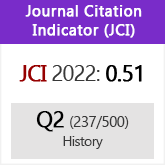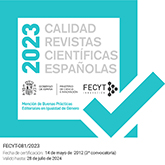Historicidad, Juridicidad y Para-Literatura: En torno a Francisco de Vitoria (1486-1546)
DOI:
https://doi.org/10.3989/aeamer.2002.v59.i2.180Keywords:
Francisco de Vitoria, international law, literature, colonization, just war, Indians, Latin America, Iberian peninsula, Spain, the Sixteenth Century, HispanismAbstract
This article focuses on the Spanish Dominican Francisco de Vitoria (1486-1546), one of the most influential intellectual figures in the Early Modern transatlantic world, specifically on his Salamanca University courses commonly called Indian Lectures. This article engages with the complete bibliography on Vitoria. It recreates a few official celebrations in memory of the possible historical legacy inside the Spain of Primo de Rivera and outside. The epistemic assumptions of Early Modern and colonial history, literature and law (or the repressive culture) are analyzed. The notion of “para-literature” is proposed to thus take into account hermeneutic problems generated, for contemporary readers today, by this monastic and university-based construction of an expansive natural-law normativity that is parallel to the already existing book and print technologies. We look into the form and content, social function and consequences of the official rationale or legal logic (so called “titles”) of Western expansionism and the conquest and colonization of America.
Downloads
Download data is not yet available.
Downloads
Published
2002-12-30
How to Cite
Gómez, F. (2002). Historicidad, Juridicidad y Para-Literatura: En torno a Francisco de Vitoria (1486-1546). Anuario De Estudios Americanos, 59(2), 413–440. https://doi.org/10.3989/aeamer.2002.v59.i2.180
Issue
Section
Articles
License
Copyright (c) 2002 Consejo Superior de Investigaciones Científicas (CSIC)

This work is licensed under a Creative Commons Attribution 4.0 International License.
© CSIC. Manuscripts published in both the printed and online versions of this Journal are the property of Consejo Superior de Investigaciones Científicas, and quoting this source is a requirement for any partial or full reproduction.All contents of this electronic edition, except where otherwise noted, are distributed under a “Creative Commons Attribution 4.0 International” (CC BY 4.0) License. You may read here the basic information and the legal text of the license. The indication of the CC BY 4.0 License must be expressly stated in this way when necessary.
Self-archiving in repositories, personal webpages or similar, of any version other than the published by the Editor, is not allowed.














